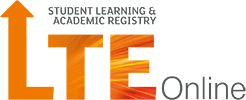The University’s RELT Professional Development Framework is accredited by the Higher Education Academy providing external and independent confirmation that our taught and continuing professional development programmes are aligned with the UK Professional Standards Framework for Teaching and Supporting Learning in Higher Education (UKPSF). It provides participants with the opportunity to be professionally recognised through the Higher Education Academy (HEA) fellowship scheme.
Our framework illustrates how University colleagues can ensure their professional practice is UKPSF/HEA recognised either through the Post Graduate Certificate in Learning and Teaching in Higher Education (PgCLTHE) taught Programme and/or the Continuing Professional Development (CPD) Programme. The PgCLTHE provides Associate Fellow HEA (AFHEA) and Fellow HEA (FHEA) recognition and the CPD Programme provides AFHEA, FHEA and Senior Fellow HEA recognition.
All staff joining Teesside University that are involved in teaching and supporting learning are required to attend an Academic Learning and Teaching Induction normally within the first month of taking up post. Conversations during this Induction focus heavily around UKPSF and identifying the most appropriate CPD needs for individual members of staff. New academic staff who do not have over three years fulltime teaching experience in higher education, are not Fellows of the HEA or do not have an equivalent teaching qualification are required to complete the Post Graduate Certificate in Learning and Teaching in Higher Education (PgCLTHE) leading to FHEA recognition.
While colleagues are exposed to RELT and UKPSF during academic induction more detail and information around the CPD programme within RELT is communicated through monthly workshops: RELT- UKPSF/HEA Recognition Workshop. This workshop provides a strong focus around the various descriptors within the UKPSF and colleagues attending the workshop are encouraged to share their experiences and consider the appropriate UKPSF descriptor / category of fellowship for them.
We are keen to ensure that UKPSF/HEA recognition through our Professional Development Framework is accessible to a number of colleagues across the University and the differentiation between the descriptors / fellowship categories is made clear through the various workshop and mentoring activities. In addition to the regular monthly workshops bespoke workshops are also delivered addressing the needs of particular groups of colleagues across the University. For example, a workshop was delivered specifically for a group of our Sport and Psychology Technicians; this proved particularly effective with all those attending the workshop, and subsequent group mentoring sessions, being successful in their applications seeking Associate Fellowship of the Higher Education Academy (HEA). The success of this approach has led to further developments and we are working with senior colleagues across the University to provide tailored sessions to reflect staff development requirements. We are currently developing a writing workshop for a group of colleagues in the School of Computing progressing Senior Fellowship HEA applications.
There is undoubtedly increased momentum around our framework and anecdotal evidence suggests that colleagues engaged in this process are increasingly reflecting more on their practice. Both our taught and CPD programmes within our framework require colleagues to reflect on their practice and the UKPSF criteria. In the CPD Programme, through a case study approach, colleagues identify an issue (case), discuss what they did, why they did it and how that relates to how students in HE learn; they then discuss and reflect on the impact of their teaching and supporting learning practices. This affords the opportunity to see explicitly the impact that their practice has on the student experience and provides the space and opportunity for colleagues to consider more fully what they are doing and whether it is working as well as it could.
Our framework provides a number of opportunities to share good practices; this happens at the RELT workshops, referred to above, when we discuss what colleagues are involved in and what they might draw on to provide their case. The dissemination of good practices does not end there as it is further cascaded across the Institution through mentors who support colleagues progressing applications and reviewers who read the final applications when they are submitted. Mentors and reviewers often comment around what they have learnt from the professional practice of others as a result of the process of mentoring colleagues and reviewing applications.
The University’s Professional Development Framework is currently seeking re-accreditation with the HEA and we anticipate that in autumn 2017 we will be working with our new framework. We see the re-accreditation of our framework as a key opportunity to increase further the level of engagement among both applicants and those wanting to support applicants as either mentors and/or reviewers.
Further information around UKPSF and specifically the Teesside’s University’s Professional Development Framework: RELT can be found here.
